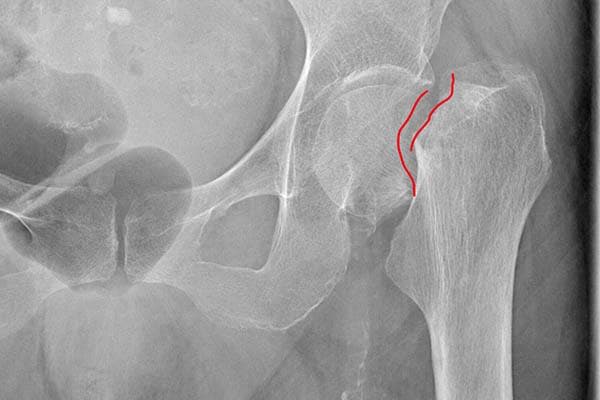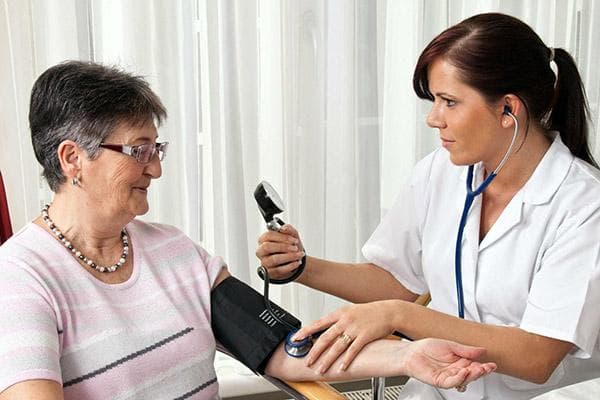Is it possible to drink coffee after 50 years: benefits and harm to health
Content:
In the last 5 years, scientists have increasingly taken the side of the popular drink. It has been proven that coffee has more benefits than harm. But this statement is true for healthy people. Is it worth drinking coffee after 50 years? After all, at this age the body weakens, and the risk of chronic diseases increases. Most people cannot boast of ideal health. How should you treat a tonic drink in the second half of your life?

Is it possible to drink coffee after 50 years?
As a general rule, it is possible and even necessary. After all, coffee beans contain a large number of biologically active components:
- B vitamins;
- nicotinic acid;
- potassium;
- magnesium;
- phosphorus;
- gland;
- unsaturated fatty acids;
- antioxidants.
Many people are confused by the presence of caffeine in the drink, which constricts blood vessels and thereby increases blood pressure. However, scientists believe that this substance can only harm heart health if consumed in excess. Such conclusions can be found in particular in the study of Eng Zhou and Elina Hipponer. The study results were published in The American Journal of Clinical Nutrition in 2019.
Coffee should not be drunk after 50 years only if there are contraindications. The rest of the people need to choose a good quality drink and follow moderation.
Beneficial properties of coffee for people over 50 years old
Aromatic coffee not only helps to cheer you up in the morning, but also has a healing effect on the body. Let us list the beneficial properties of the drink, which are confirmed by science.
Increases life expectancy
Scientists from the Harvard School of Public Health came to this unexpected conclusion in 2015. Over the course of 30 years, they managed to survey 200,000 medical workers who cared for people with chronic illnesses. Scientists have found that just 1 cup of an invigorating drink per day reduces the risk of death from the following diseases by 6%:
- cardiovascular;
- type 2 diabetes;
- stroke.
It also turned out that coffee drinkers are less susceptible to depression and suicidal thoughts. Therefore, you need to drink a tonic drink after 50 years, at a minimum, in order to prolong your life.
Coffee beans are rich in antioxidants. One cup contains approximately 1000 mcg of these substances. Doctors believe that antioxidants reduce oxidative stress in the body, thereby preventing cancer and premature aging.
Helps you lose weight
After 50 years, the body's metabolism slows down.Therefore, most people are faced with a difficult choice: reduce their daily caloric intake or accept weight gain.
Coffee will help you stay slim. In 2019, English scientists from the University of Nottingham published the results of a study on the effect of the drink on human metabolism. Experts have found that caffeine increases daily energy expenditure and helps the body burn fat deposits in the back, neck and shoulders.
Improves mood and performance
In the second half of life, people get tired of work and household chores faster. A cup of coffee helps drive away fatigue in a matter of minutes. Caffeine affects areas of the brain that are responsible for the release of the “happiness hormone” - dopamine. As a result, a person's mood improves.
Coffee is especially useful for women experiencing menopause. During this period, they note a decrease in performance and mood swings. Such symptoms occur due to hormonal changes in the body. A tonic drink improves women's well-being.
However, the mental health benefits disappear when you drink more than 3 cups of coffee daily. The body develops an addiction to caffeine, and previous dosages no longer provide a pronounced effect.
Eliminates constipation
One of the symptoms of a slow metabolism after 50 years is the development of a tendency to constipation. Problems with stool occur because the body digests food slowly.
Coffee increases the secretion of gastric juice and the production of digestive enzymes. As a result, food does not stay in the stomach for long.
Improves brain function
Coffee has been scientifically proven to reduce the risk of senile dementia, in particular Parkinson's and Alzheimer's diseases.During the roasting process, phenylindanes are formed in coffee beans. These substances prevent toxic beta-amyloid and tau proteins from accumulating in the brain and damaging neurons. The invigorating drink also contains B vitamins and magnesium, which also support the health of the nervous system.
Potential health risks of coffee
Still, coffee can be harmful to the health of some people over 50 years of age. Incorrect use and ignoring contraindications increase the risk of problems.
Makes bones more fragile
Many people have heard that coffee flushes calcium from the body. This happens for two reasons:
- The drink increases the acidity of gastric juice. To normalize the pH level, the body is forced to pull alkaline minerals, which include calcium, from its tissues.
- Macronutrient losses are enhanced due to the diuretic effect.
Therefore, the consumption of the drink should be limited in the presence of diseases of the musculoskeletal system (osteoporosis, osteochondrosis), fractures. Doctors also recommend caution when drinking coffee for people who have split nails and split ends of their hair. Such signs often indicate calcium deficiency in the body.
Coffee also has a negative effect on tooth enamel. Coffee lovers often develop a yellowish coating on their teeth.
On the Internet you can find a misconception that drinking coffee with milk or cream is less harmful to bones, since dairy products contain a lot of calcium. However, the real situation turns out to be the opposite. Coffee with milk acidifies the body even more, which leads to a greater loss of valuable macronutrients.
Increases blood pressure
Unfortunately, hypertensive patients will have to either give up coffee completely or limit their consumption to 1 cup per day. The blood pressure regulation system in such people is weakened. By narrowing the blood vessels, coffee can worsen the condition.
Hypertensive patients can drink a caffeine-free drink. At the same time, it is not recommended to drink this coffee if you have atherosclerosis due to its high content of fatty acids.
Sometimes cardiologists allow heart patients to drink 1 cup of latte or cappuccino in the morning. These drinks contain little caffeine.
Exacerbates gastritis, ulcers
The list of contraindications to drinking coffee includes gastritis, ulcers and other diseases that cause damage to the walls of the gastrointestinal tract. After all, the drink makes gastric juice sour and thereby irritates the mucous membrane. Heartburn is the first sign that signals a negative effect of the product on the body.
Few people know that even decaffeinated coffee is prohibited for diseases of the gastrointestinal tract. It still contains potential oxidizing agents.
May cause irritability
Excess caffeine is harmful to the psyche. After 50 years, coffee lovers often notice that another cup of their favorite drink causes them mood swings and dizziness. The feeling of strength quickly gives way to a feeling of fatigue. And if you drink coffee after 16:00, you may experience insomnia.
How to drink coffee properly after 50: answers to frequently asked questions
So, coffee is a controversial drink for the health of people over 50 years of age. Fortunately, there are simple rules that allow you to get only benefits from drinking a tonic drink.
Which coffee is better to drink - ground or instant?
Definitely ground.It is this drink that has the beneficial properties described above.
Instant coffee has the following disadvantages for people over 50 years of age:
- During the production process, coffee beans go through many stages, including drying and hot steam treatment. As a result, some of the valuable compounds disappear.
- Dyes, stabilizers, flavors and preservatives are usually added to instant coffee. These substances increase shelf life, improve the taste and appearance of the product, but are harmful to human health.
- Instant coffee oxidizes gastric juice more strongly than ground coffee.
You shouldn't get carried away with caffeine-free drinks either. To extract the alkaloid from grains, manufacturers use chemical solvents, in particular ethyl acetate, dichloromethane. Residues of these compounds may end up in your cup. In addition, decaffeinated coffee does not have the most pleasant taste because it loses some of the aromatic substances during the processing process.
How many cups of coffee can you drink a day?
The exact answer to this question depends on the individual characteristics of the organism. Doctors recommend starting from the following numbers:
- 3 cups – for those who managed to maintain good health by the age of 50;
- 2 cups – for most people over 50 years old;
- 1 cup, but not every day - if you have problems with the heart, gastrointestinal tract, kidneys, liver or musculoskeletal system.
If chronic diseases worsen, you will have to give up the drink for a while. 4-5 cups a day is the turning point after which coffee begins to harm the heart and blood vessels, nervous system, and bones.
What time of day is best to drink coffee?
In the first half of the day. But not on an empty stomach, so as not to irritate the mucous membranes.It is optimal to drink the first cup an hour after breakfast, and the second after lunch.
You should not wash down your food with a tonic drink. Coffee can interfere with the body's ability to absorb potassium, magnesium, calcium, and vitamins B1 and B6. After 16:00 the product is strictly contraindicated due to the risk of insomnia.
What can you add to coffee?
And again you need to analyze the state of your body. Thus, milk partially neutralizes the effect of caffeine, which is good for hypertensive patients. At the same time, it is not suitable for people suffering from high acidity of gastric juice.
Lemon juice, on the contrary, alkalizes the body. But doctors do not recommend drinking coffee with lemon to people who have inflammatory diseases of the kidneys, bladder, or pancreas.
Cinnamon and other spicy spices enhance the fat-burning properties of the drink and are useful for overweight people with sluggish digestion. But if you have diseases of the cardiovascular system, you will have to refuse such supplements.
Thus, coffee can bring both benefits and harm to people over 50 years of age. The final effect depends on many factors: the type and type of drink, time of consumption, number of cups drunk, and the presence of additives. There is a list of diseases and characteristics of the body in which coffee should be limited or even eliminated from the diet.













